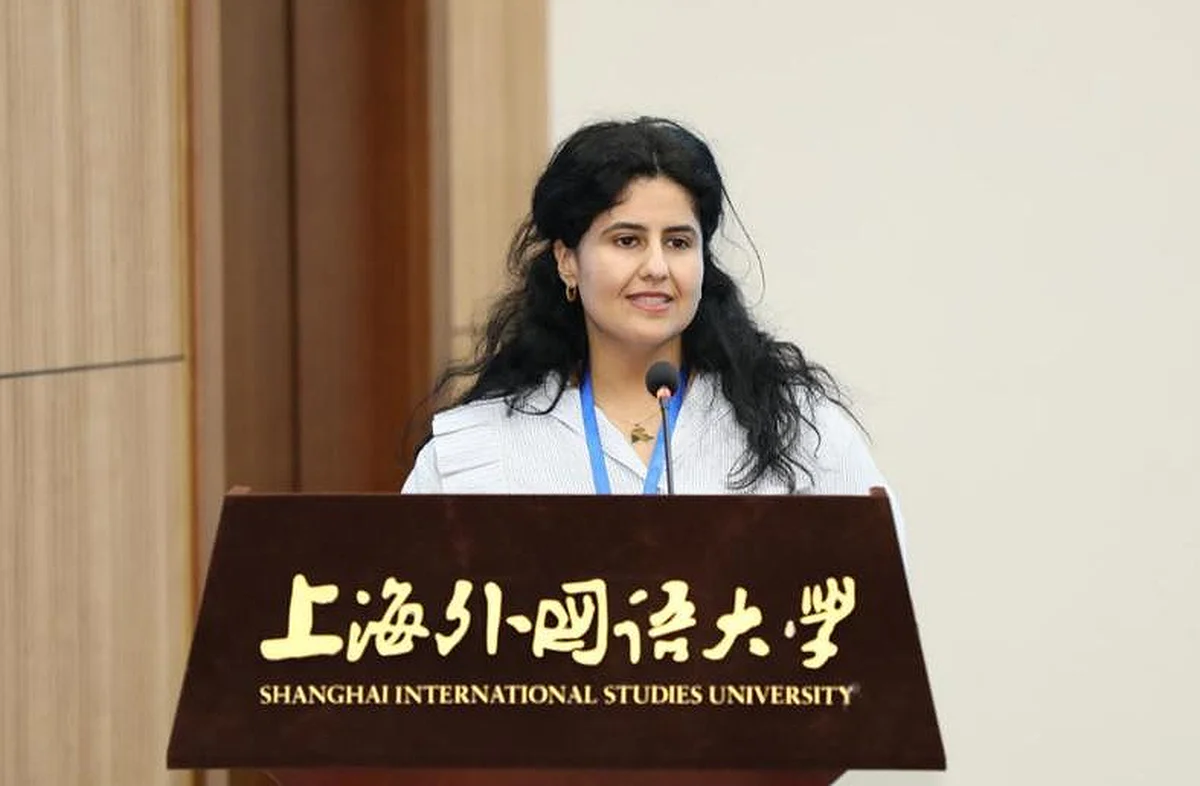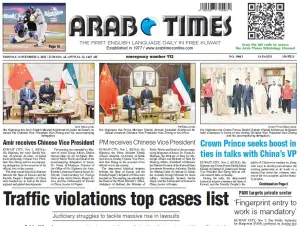14/10/2025
14/10/2025

KUWAIT CITY, Oct 14: Cultural diplomacy and the empowerment of women have emerged as key drivers of the enduring partnership between Kuwait and China, according to Kuwaiti cultural researcher Sheikha Al-Anoud Al-Ibrahim Al-Duaij Al-Sabah. In an interview with Xinhua, Al-Anoud emphasized that exchanges between women from both countries have infused bilateral relations with vitality, understanding, and a shared human touch.
Sheikha Al-Anoud, who serves as the Chairwoman of the Kuwait–China Friendship Club, has visited China numerous times over the past decade, traveling to cities such as Beijing, Shanghai, Hangzhou, Shenzhen, and Yinchuan. Reflecting on over fifty years of diplomatic ties, she highlighted the vital role of pioneering Kuwaiti women, notably Lulwah Al-Qatami, founder of the Kuwait Women’s Cultural and Social Society and the first director of the Women’s College at Kuwait University.
Between the 1970s and 1990s, Lulwah Al-Qatami made several visits to China, where she was warmly received by senior Chinese officials, including Deng Yingchao, the wife of the late Premier Zhou Enlai. During her travels to Beijing, Inner Mongolia, and Yunnan, she became deeply inspired by Chinese culture and brought home the saying she heard at the Great Wall: “He who has never been to the Great Wall is not a true hero.” This phrase, Al-Anoud noted, remains well-known among Kuwaitis even today.
“This piece of history demonstrates that women are not only participants in social progress but also vital messengers in fostering cross-cultural understanding,” Al-Anoud said.
In recent years, more Kuwaiti women leaders from civil society, educational, and volunteer organizations have visited China to explore cooperation in areas such as education, health, and social welfare for women and children. “These exchanges have significantly deepened mutual understanding and cooperation between our two nations,” she added.
Discussing global women’s empowerment, Al-Anoud referred to the Beijing Declaration and Platform for Action, adopted at the 1995 World Conference on Women, as a turning point in the fight for gender equality. “That platform identified twelve key areas of concern and later inspired the UN Security Council Resolution 1325 on Women, Peace and Security,” she explained.
Within the Middle East, Al-Anoud observed, women have become an increasingly powerful force for social and economic development. “Women play a fundamental role within families and education while also taking active roles in politics, business, security, science, and medicine,” she said.
However, Al-Anoud expressed grave concern over the suffering of women and children in conflict zones, particularly in Gaza. “Women and children bear the greatest burden of war — facing hunger, violence, and even mass killings — while the global response remains painfully slow. This is a moral test for all humanity,” she warned, urging stronger international coordination to ensure humanitarian protection and aid delivery in line with international law.
Looking ahead, the Kuwaiti scholar and royal family member believes there is enormous potential for Kuwait–China collaboration in promoting women’s development. She noted Kuwait’s recent milestones — such as the establishment of Kuwait Women’s Day and the appointment of the country’s first female judges — alongside China’s recognition of women’s achievements in science, innovation, and the fight against the pandemic.
“Chinese women have shown remarkable courage, intelligence, and responsibility in addressing global challenges — experiences from which Kuwait can learn and benefit,” Al-Anoud said.
As Chairwoman of the Kuwait–China Friendship Club, established in 2025, she explained that the organization serves as a bridge between the two peoples, hosting cultural, educational, health, and youth exchange programs to enhance mutual friendship and understanding.
“It is my hope that more Kuwaiti women’s organizations will visit China, further strengthening cooperation and adding the strength and wisdom of women to Kuwait–China relations,” Al-Anoud concluded. (Xinhua)


